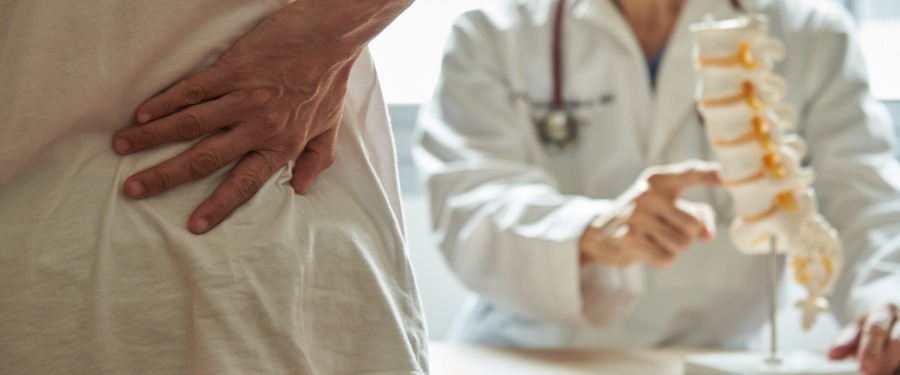What causes osteoporosis?

Osteoporosis, translated directly to “porous bone,” is a condition that impacts approximately 10 million Americans. The human body is constantly producing bone cells, but they are constantly being lost as well — and when the cells are being dissolved faster than they are being produced, weakness can result. Below, we’ll be taking a closer look at what osteoporosis is, what causes it, and how people can reduce the likelihood of developing the condition in their lifetime.
What is osteoporosis?
Osteoporosis is a bone disease caused by diminished mineral density and bone mass. The condition makes a person more susceptible to fractures but is often called a “silent” disease due to the lack of osteoporosis symptoms. It is rare for people to know they have the condition until they break a bone, but once they have been diagnosed, there are osteoporosis treatment options available to reduce the rate of degeneration.
What causes osteoporosis?
While there is no single, definitive cause of osteoporosis, there are several risk factors that can increase a person’s risk of developing the condition. Women are more likely to develop osteoporosis than men, but everyone is more likely to develop it as they age. Family history is a major risk factor, as is race; white and Asian individuals are most likely to be impacted.
Additionally, certain hormone levels can increase a person’s risk — this includes decreased estrogen and testosterone, excess thyroid hormone, or overactive adrenal glands. Individuals who have had a lifelong lack of calcium, have used steroids long-term, live with celiac disease, or practice a sedentary lifestyle are also at an increased risk.
How to prevent osteoporosis
Keeping your bones healthy is a key part of reducing the risk of osteoporosis. Calcium and vitamin D are both used by the body to strengthen bones, so getting adequate levels in the diet is a great place to start. Weight-bearing exercises have been shown to increase bone density, so this is a good option for anyone looking to prevent or reduce the impact of osteoporosis. Other generally healthy life habits, such as limiting alcohol intake, eating a balanced diet, and refraining from smoking are also correlated to osteoporosis risk.
Osteopenia vs. osteoporosis
Osteopenia is a condition that also impacts the strength and health of the bones, and is considered the first step toward osteoporosis. Many people will not know that they have osteopenia unless they have to receive a bone density test which may reveal weaknesses.
For patients living with osteoporosis, finding a clinical trial can be a great way to explore new potential treatments. If you’d like to learn more, use the button below to get started.
Topics: For Patients
